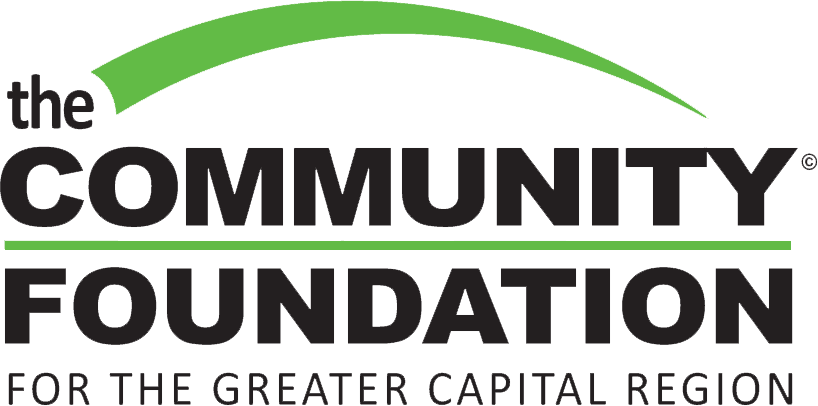On a Monday morning in July, I sat down with five Community Foundation supporters at the Rensselaer County Historical Society for a conversation about their commitment to philanthropy at the local level. For all, the experience of community was a prominent theme.
Steve Muller, who moved to Troy with his wife Mary a few years before establishing a fund with the Community Foundation, led off with a rhetorical question: “Who wouldn’t support their community?” He and his wife Mary chose to settle in Troy partly because “it’s small and thus easier to have an impact.”
Wally and Jane Altes both grew up in small Midwest towns where their parents set an example of being involved as volunteers. In planning for retirement, Troy offered an opportunity to engage in a way they hadn’t experienced before; “we just liked the place,” remembered Jane. Having led the Chamber of Commerce for many years, Wally lauded the Community Foundation as a truly regional organization that can counterbalance our tendency to think only of our very local turf. As he says, “there are so many ropes pulling us apart as a region, but the Community Foundation pulls us together while allowing individuality in our philanthropy.”
Paul and Alane Hohenberg established their fund in 2000 when Paul served as a member of the Foundation’s board of directors. “I didn’t grow up with a sense of community; we moved from one large city to another. So I learned early that you sometimes must dig your own roots.” Paul and Alane have done just that in their beloved Troy. “We saw opportunities here,” said Alane. In a smaller city like Troy, you can get close to what interests you and have an impact in your community.”
Like the other donors in our conversation, I have found that the Community Foundation serves to extend my understanding of our community and to connect me to new initiatives and programs. I like the way Wally put it: “Pairing up of needs with people who can help is key to the value of the Foundation.” Their staff can vet a small organization like a neighborhood food pantry to determine its reliability and the seriousness of its need and then recommend it to donors who might be interested. Alane pointed out that in many cases these can serve as “gateway” grants, endorsing a young organization that may then go to other funding sources with the credibility lent by the Community Foundation’s support. At the same time the Foundation can “school” a relatively new yet worthy not-for-profit in how best to work with potential supporters and by that means, help it to grow.
All of us had a desire and the ability to give back, but it was interesting to see how the Community Foundation helped to make it just a little easier. Many of us, especially at this point in our lives, are fortunate in having appreciated assets that we don’t need. The Foundation can help us make good use of those assets, and the charitable tax break is a bonus. And a donor-advised fund allows us the opportunity to give when it’s personally convenient and direct our charity as needs arise. Paul pointed out that this is a wonderful tool for planning a legacy. Jane said her personal goal is to “get it all spent” on worthy causes. Being able to support a cause such as help for people with HIV/AIDS brings her personal satisfaction, even joy. Whatever your philanthropic goal, the Community Foundation is there to help you reach it.
Philanthropy is for each of us deeply personal, yet to have an impact it must be community-oriented. The Community Foundation brings personal interests and community-orientation together, helping donors explore both their individual interests and the needs of their community, facilitating their grant-making and building a network of philanthropists to effect real change in our communities.
Reflecting on our conversation, something Coretta Scott King wrote comes to mind: “The greatness of a community is most accurately measured by the compassionate actions of its members.” There is of course more to compassion than writing checks, but lending financial support to worthy causes is an important step. The Community Foundation helps many of us to take that step with confidence, and by that means to grow in compassion. I see the modifying phrase in the Foundation’s name — “for the Greater Capital Region” — in a new light. Our region is greater, in Coretta Scott King’s sense of greatness, because of the Foundation’s work in building a community of compassionate giving.

— Michael Halloran, Advisor
Tom Phelan Memorial Fund
